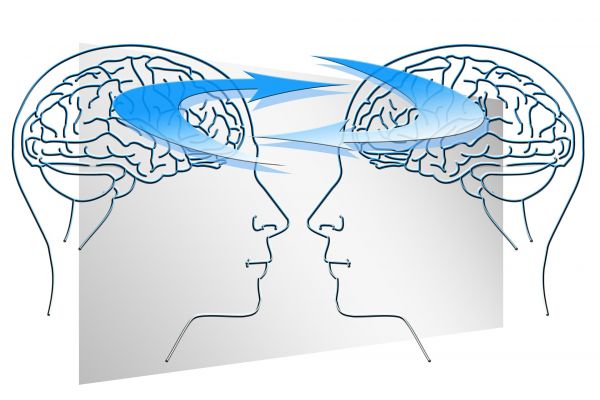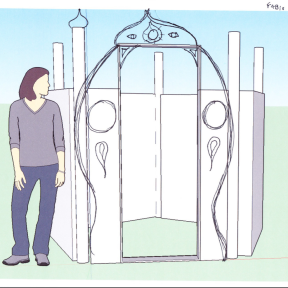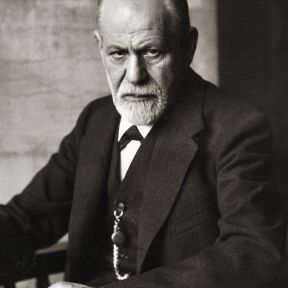
Intellectualization
Intellectualization is a defense mechanism in which people reason about a problem to avoid uncomfortable or distressing emotions.
For example, if a woman’s roommate announced that she was moving out, the woman might conduct a detailed financial analysis of her new budget rather than confront her emotions of sadness, loneliness, or anger. A man who lost his wife may focus all of his energy on funeral arrangements and logistics instead of acknowledging his grief.
By channeling mental energy into a logical assessment or abstract discussion, an individual can avoid painful emotions or remain distanced from beliefs that challenge their sense of self.
Sigmund Freud, and his daughter Anna Freud, developed the concept of defense mechanisms. Anna believed that intellectualization often emerged during the turbulence of adolescence. Although many of Freud’s theories have been disproven over time, the concept of defense mechanisms has endured.

In some cases, it can be fine to put off an emotional burden for a short time—it may even be necessary. But if emotions aren’t addressed over time, they can build up and interfere with daily life or escape in an unhealthy way, such as through anxiety or a panic attack.
A therapist might observe instances in which a patient shifts into an abstract, lofty conversation about a particular topic or seems emotionally detached from a painful experience. For example, a woman may discuss a sexual assault in logical, clinical terms without acknowledging its emotional impact. At the right time, the therapist might explore this reaction or discuss strategies for emotional awareness and acceptance, with the goal of processing the experience and moving forward.
Experiences can be scary or painful when they involve changing the beliefs that make up our sense of self. Deception functions to protect our identity and self-esteem. Large shifts that threaten our self-concept may elicit defenses because fully integrating those changes takes time.
We all use defense mechanisms from time to time, and sometimes that’s adaptive. For example, sometimes it’s important to think about a problem in abstract, logical terms to avoid making an impulsive, emotional decision. However, intellectualization can hinder mental health when it is used too frequently or to avoid emotion. Too much self-examination or overanalyzing may also prevent people from living in the moment, forging connections, and finding fulfillment.
Emotions provide important information. By refusing to acknowledge them, people can fail to integrate experiences or beliefs into their identity and make the best decisions for their career, relationships, and health. For example, a man recovering from a recent heart attack may begin researching risk factors for cardiovascular disease, organize the information in binders, and devise a strict new dietary regimen, yet fail to acknowledge that his smoking habit could be more harmful to his health. A therapist can help patients confront difficult truths and make different choices with greater self-knowledge.
Rationalization is another defense mechanism, in which people use plausible arguments to justify something difficult or minimize the damage it causes. After a breakup, for example, a woman might say that she’s happy because her ex-boyfriend didn’t really share her values and the split has freed her to find a better partner. Rationalizing involves justifying what occurred, while intellectualization involves shifting focus from the emotional to the intellectual.

Although intellectualization may not be the most common defense mechanism, it can emerge in plenty of daily dynamics, from time wasted overanalyzing a problem to a relationship conflict that never seems to resolve. It is important to recognize that some people have a more abstract cognitive style and tend to have a more intellectual take on many aspects of life; this does not necessarily reflect a defense mechanism.
Intellectualization is often difficult to detect, because it seems logical, analytical, and fact-based. Signs that someone may be intellectualizing include the person restating the facts of a situation again and again, arguing from one’s own perspective rather than taking someone else’s view, having a stagnant conversation or argument that doesn’t deepen, and refusing to engage the other person if they don’t share the same perspective.
If it becomes a pattern in a relationship, intellectualization can be destructive. Blocking distressing emotions when discussing a conflict can prevent the person who intellectualizes from fully empathizing with their partner, realizing and accepting mistakes they made, and taking accountability for their actions. These steps are often necessary to move through the conflict and determine the best solution for both partners.
People can address defense mechanisms like intellectualization by bringing awareness to their emotions and accepting difficult feelings. For example, if you drop a beloved antique dish and intellectualization springs into play, you might focus on finding a new serving dish right away. But it may be best to simply be angry at first. Embracing difficult emotions in the moment may lead to greater happiness long term.














